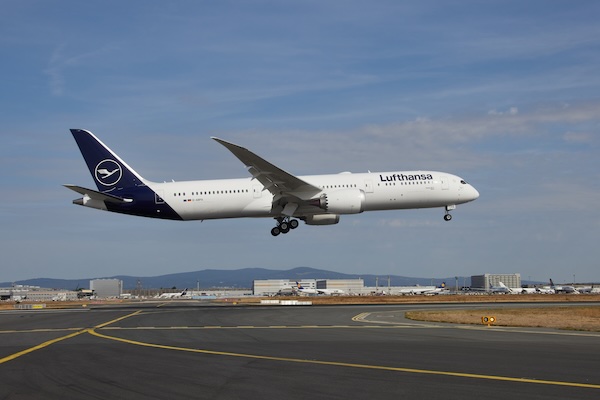Lufthansa, a titan in the aviation sector, is confronting a formidable challenge as ongoing strike action threatens its financial stability. The strikes, deemed ‘uncompromising’, have resulted in operational disruptions that echo across its vast network.
Impact of the Strikes
Lufthansa is currently grappling with significant operational challenges due to ongoing industrial action. The strikes, described as ‘uncompromising’, are anticipated to exacerbate financial losses in the winter quarter. The airline has been operating at a vastly reduced capacity, reportedly running only 10%-20% of flights over the ongoing strike period. These disruptions have had a ripple effect, affecting trade show delegates and numerous passengers reliant on Lufthansa’s services. The German airline’s executive, Micheal Niggemann, urged the Verdi union to suspend the strikes and enter negotiations without preconditions, in hopes of mitigating further disruptions.
Financial Implications
The financial impact of the strikes is substantial, with Lufthansa projecting higher losses for the current quarter compared to the previous year. This is attributed to both disruptions in operations and decreased profitability within its logistics division. Despite these challenges, Lufthansa’s recent financial performance has been exemplary, showcasing a strong post-pandemic recovery. The airline reported its third-best financial results in its history last year. Revenue increased by 15%, reaching €35.4 billion, and net profits more than doubled to €1.7 billion. Such outcomes underscore both the resilience and potential vulnerabilities within the airline’s economic framework, highlighting how labour instability can threaten these gains.
Operational Adjustments
Efforts to maintain operational stability have seen Lufthansa airlines enhancing their flight offerings. The group reported a 14% increase in flights offered, totalling 946,000 last year, with passenger carryings also increasing by 20%. Load factors have improved, nearing pre-COVID levels despite expanded capacity. However, ensuring stability remains a priority, with the airline focusing heavily on regularity and punctuality improvements as it contends with ongoing labour disputes. Furthermore, planned investments in new aircraft and enhanced passenger services reinforce Lufthansa’s commitment to operational excellence.
Future Outlook: Expansion Plans
In spite of present challenges, Lufthansa Group remains focused on expansive growth. The group is actively seeking European Commission approval for investing in ITA Airways, a strategic move intended to boost international operations. This investment aligns with the airline’s broader goals to internationalise its operations and capitalise on emerging market opportunities abroad. The group’s commitment to expansion is also reflected in its ambitious fleet modernisation plans, which are expected to proceed vigorously this year.
Loyalty and Investment in Employees
Lufthansa’s dedication to its human resources is evident, with the company having made sizeable investments in employee benefits and wages. More than a 10% salary increase has been granted to employees, along with extensive profit-sharing schemes. In his recent statement, CEO Carsten Spohr expressed gratitude to the airline’s workforce, emphasizing their essential role in the company’s financial achievements. Lufthansa also aims to sustain employee satisfaction by involving them significantly in the company’s success.
Customer and Shareholder Commitment
Customer satisfaction and shareholder returns are top priorities for Lufthansa. The investment of €4.5 billion in state-of-the-art aircraft, cabin interiors, and digital services exemplifies this commitment. Additionally, for the first time since 2019, Lufthansa plans to issue dividends, reflecting confidence in ongoing financial recovery and stability. These initiatives are designed to elevate customer experiences back to premium levels, fostering loyalty and trust within the airline’s clientele.
Challenges and Strategic Responses
The ongoing industrial disputes present both challenges and opportunities for Lufthansa. While strikes have undeniably strained relations and financials, the airline’s strategic focus on negotiating stable labour agreements and investing in operational efficiencies signifies its proactive approach. Lufthansa’s constructive engagement with labour unions, emphasising mutual solutions, aims to strike a balance between operational needs and workforce welfare, thereby securing future profitability.
In conclusion, while strike-induced disruptions pose significant hurdles, Lufthansa’s strategic focus on growth, employee investment, and customer satisfaction reflects its resilience. The airline remains committed to navigating these turbulent times with a strategic vision for a prosperous future.

